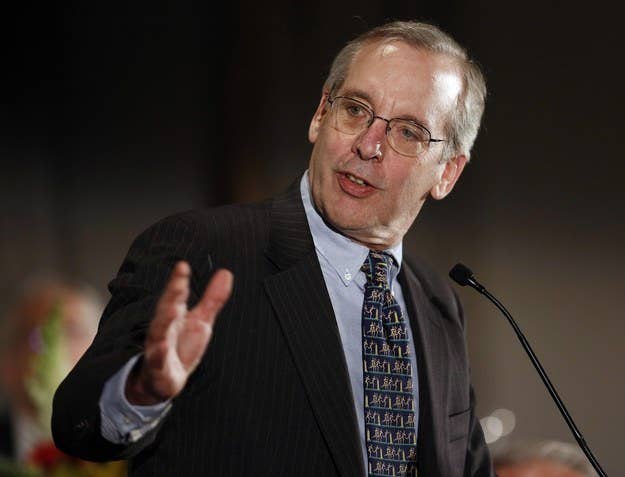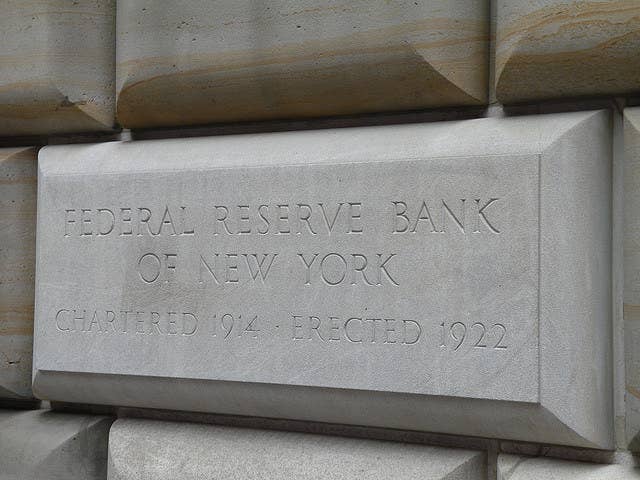
WIlliam Dudley, the head of the Federal Reserve Bank of New York, has again used a speech to criticize the "unethical behavior" in banks that he says may be endemic to the industry.
In a speech given Thursday, Dudley said that the LIBOR scandal, where bank employees helped manipulate these benchmark interest rates to make their trades more profitable, was evidence of "questionable behavioral norms the industry." LIBOR, which stands for "London Interbank Offered Rate," is a measure of what interest rate banks can borrow at in different currencies at different times and is the basis for the price of hundreds of trillions worth of financial products.
Dudley said the LIBOR scandal was evidence of a "sad state of affairs" where "unethical behavior is socialized among new traders with the explanation that this is business as usual." The LIBOR scandal has engulfed several banks, leading to billions worth of penalties in settlements with regulators and even the resignation in July 2012 of the British bank Barclays' then-CEO, Bob Diamond.
Dudley also said it was "untenable" for "people working in compliance and risk [to be] treated as second-class citizens relative to the firms' revenue generators."
This is not the first time that Dudley has used the bully pulpit to criticize the culture of banks. The criticism is notable coming from the head of the New York Fed, which supervises large Wall Street institutions like Goldman Sachs and JPMorgan and, in its role executing monetary policy, has commercial relationships with the biggest banks in the U.S. and overseas.

The New York Fed has come under fire after a report by ProPublica and This American Life that documented the short career of one bank examiner, Carmen Segarra, who was fired in 2011 after a disagreement over how to characterize Goldman Sachs' conflict of interest policy. Segarra, who recorded 47 hours of interactions with her bosses and bank officials, has criticized the New York Fed for being overly deferential to big banks like Goldman Sachs and unwilling to directly confront them over behavior that even Fed employees said was inappropriate.
Dudley is perhaps an unlikely champion for banks reforming their corrupt cultures. Before joining the New York Fed in 2007, Dudley had a long career at Goldman Sachs where he rose to become a managing director and its chief U.S. economist.
But Dudley has been publicly criticizing the culture of the financial industry since last year. In a speech he gave in November, Dudley said that "within some large financial institutions," there was an "apparent lack of respect for law, regulation, and the public trust." The "evidence of deep-seated cultural and ethical failures at many large financial institutions," Dudley said, was "another critical problem that needs to be addressed."
Dudley has also suggested several times that bank executives could be more long-term oriented in their thinking if more of their compensation could be deferred over years, and if it was in debt issued by the company instead of shares.
Such a pay scheme, Dudley said last year, could "meaningfully alter management's risk tolerance" and "also affect management's risk tolerance and the appetite to cut dividend payments, reduce share repurchases or raise more capital more promptly when the firm began to become stressed."
